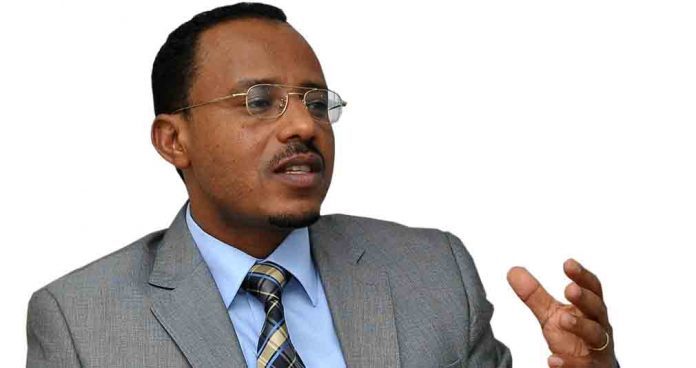The surprise resignation of Ethiopia’s Prime Minister Hailemariam Desalegn has got some people looking at Oromo leader Lemma Megersa as a potential successor
Until recently, few people outside of Oromia, Ethiopia’s largest and most populous region, had heard of Lemma Megersa. But by the beginning of 2018, the clamour around the 47-year-old had turned him into a household name. He is now one the most popular Ethiopian politicians since the governing Ethiopian People’s Revolutionary Democratic Front (EPRDF) came to power 26 years ago.
After the central government declared a state of emergency in response to mass protests in October 2016, the then little-known speaker of the Oromia State Assembly was elected chairman of the regional ruling party and president of the Oromia National Regional State.
This moment’s significance was under-appreciated at the time: the Oromo People’s Democratic Organisation (OPDO), one of the four parties that make up the EPRDF, had for the first time in its history chosen its own leadership without outside interference.
After the shock resignation of Hailemariam Desalegn as prime minister on 15 February, many are betting on Lemma as his successor. That would make him Ethiopia’s first Oromo national leader.
Young, articulate and confident, Lemma burst onto the national political scene in 2017 by distancing himself from his coalition partners and adopting the rhetoric of street protesters from his home state. “Why persist with costly street protests when we have made your demands our own?” he said in a recent speech. “If we failed to deliver using existing legal and institutional mechanisms, I and all of us here will join you in the protests.”
Such words raised the hackles of some observers, who noted that Lemma was by no means a political outsider. He had been part of the region’s security apparatus for more than a decade, inside the regional government since the 1990s and a member of the EPRDF for his entire political career.
Lemma and his team have worked hard to reform the OPDO and the regional administration. He promised an “Oromo economic revolution”, picked fights with foreign investors, replaced more than 8,000 regional officials and embarked on a campaign against smugglers and “rent seekers”.
Sceptical activists, especially among the vocal Oromo diaspora, have been largely won over. OPride, an influential Oromo website based in the US, argued at the end of 2017 that “Lemma is already looking like Ethiopia’s new leader. He has the charisma. He has the eloquence. He has the base.”
He also won admirers in other regions, especially Amhara, where on a recent visit he ditched the polarising language of Oromo nationalism for a more inclusive pan-Ethiopianism, declaring that a united Ethiopia was to him an “addiction, like crack”.
By the end of 2017, Lemma had “unprecedented control” over the OPDO, according to Hallelujah Lulie, a political analyst.
Despite the widespread goodwill in Oromia, many in other regions blame him for the recent uptick in harassment of non-Oromos. “We don’t trust him,” says Gera Hiwot, dean of the College of Law at Mekele University in Tigray Region.
Another southerner like Hailemariam, or the deputy prime minister, Demeke Mekonnen, an Amhara, might be more palatable to such sceptics, at least for a transitional period prior to elections in 2020.
Lemma may also face challenges for the top job from others in the OPDO. Since he does not have a seat in the federal parliament his route to the premiership is much trickier than it is for Workneh Gebeyehu, Ethiopia’s foreign minister, who also has the advantage of closer links to the TPLF and the security apparatus.
Then there is Abadula Gemeda, speaker of the federal parliament and a former president of Oromia. He and Workneh both lack Lemma’s popularity on the ground in Oromia, but they may have greater support among key EPRDF powerbrokers.
Before national leadership can become a realistic prospect Lemma’s challenges will include stabilising Oromia and allaying the fears of those in other regions. “Ethiopian people are always looking for a hero,” says Aregawi Berhe, a former leader of the Tigrayan People’s Liberation Front. “But it doesn’t last long.”
• This article was amended on 17 February to change the name and title of one of the sources. Kindeya G. Hiwot, dean of Mekelle University was changed to Gera Hiwot, dean of the College of Law at Mekele University.
By Tom Gardner
![]()





























